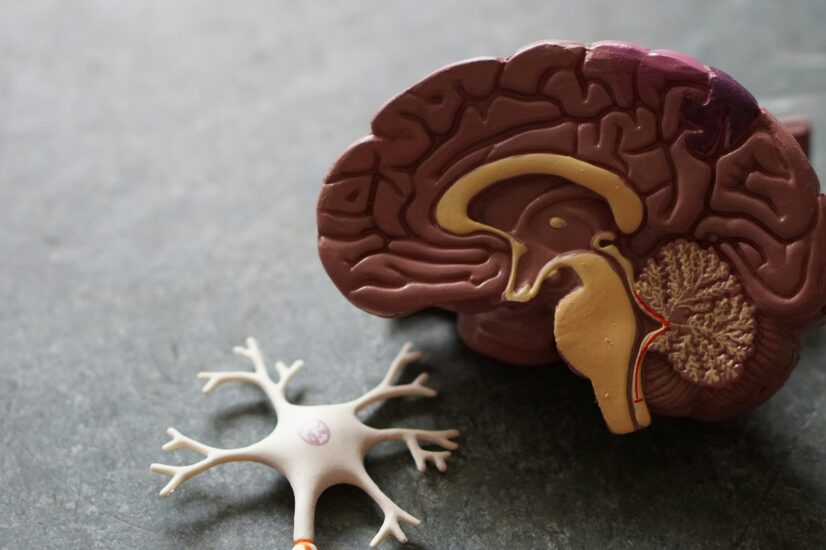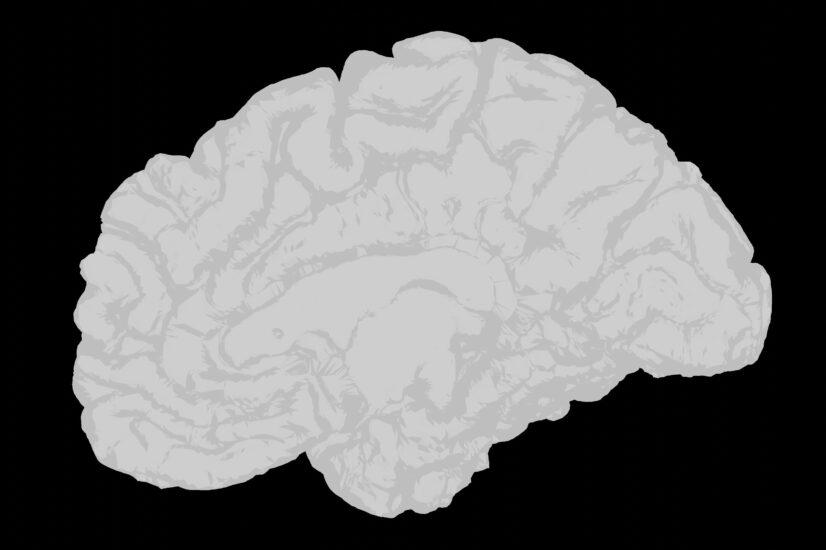The gut microbiome plays a key role in modulating the immune system. An imbalance in gut bacteria can lead to inflammation, which is linked to various neurological disorders, including Alzheimer’s disease. The composition of the gut microbiome changes with age as well as with disease. Alterations in the gut microbiome of Alzheimer’s patients have been linked to the buildup of amyloid plaques in the brain. A new study has found that gut microbe Bacteroides is linked to reduced clearance of amyloid beta, leading to buildup of amyloid plaque in the brain. Although there are more than 30 species of Bacteroides in our gut, many with important and beneficial roles, one species—Bacteroides fragilis—affected amyloid clearance. The findings could pave the way for the development of innovative microbiome-based therapies aimed at targeting these specific microbes.
*********
Age can impact the composition of the gut microbiome and, consequently, affect the risk for or resilience against Alzheimer’s disease. Aging is associated with increased abundance of Bacteroides species in both mice and humans. Elevated levels of these bacteria have been linked to an increased risk of mortality in older individuals, as well as an increased presence in Alzheimer’s patients.
Dr. Laura Cox has been investigating how the gut microbiome can modulate Alzheimer’s disease. In prior work, Dr. Cox and her colleagues discovered that colonizing Alzheimer’s model mice with Bacteroides also increased amyloid plaques in their brains. In the new study, the researchers identified the signaling pathways by which these bacteria could be exerting their effects. The scientists discovered that the biological processes involved in the production and clearance of toxic amyloid beta were affected.
Microglia, the brain’s innate immune cells, ingest amyloid beta which helps clear the brain of the toxic protein. The new study examined how Bacteroides fragilis affected microglial function in Alzheimer’s mice. Gene expression measurements revealed that these bacteria can suppress the activity of microglial genes related to phagocytosis, the process by which microglia ingest and clear amyloid beta.
To validate their observation, the research team devised a more direct experimental approach to evaluate microglial phagocytosis. They aged non-Alzheimer’s mice, colonized them with Bacteroides fragilis, and injected them with a labeled and traceable version of amyloid beta. They then looked at the levels of the labeled amyloid beta ingested by microglia. They observed that the microglia of the older colonized mice took up less amyloid beta than the non-colonized control mice.
The results of the study suggest that Bacteroides fragilis promotes amyloid beta by suppressing immune-mediated amyloid clearance. To investigate this link further, the researchers conducted experiments using an antibiotic against the broader type of bacteria that Bacteroides fall under. The treatment led to reduced amyloid beta plaque burden in certain regions of the brain, providing further evidence of the potential impact of gut microbes on Alzheimer’s disease pathology.
Bacteroides, including good and detrimental forms, are incredibly widespread: It’s almost the number one bug and outnumbers E. coli a thousand to one. Future research aims to delve deeper into the specific roles of different strains of Bacteroides in the development and progression of Alzheimer’s disease. Understanding the complex interplay between the gut microbiome and Alzheimer’s could open up new avenues for tailored microbiome-based therapies designed to address the unique microbial imbalances. Overall, these findings underscore the importance of considering the gut-brain axis in the context of Alzheimer’s and offer hope for novel approaches to leveraging the microbiome for therapeutic interventions. As researchers continue to unravel the intricate connections between gut microbes and brain health, the potential for microbiota-based strategies to impact the course of Alzheimer’s disease becomes increasingly promising.
Published in Nature Communications
Oleg Butovsky, Ph.D., Brigham and Women’s Hospital/Harvard Medical School
Laura M. Cox, Ph.D., Brigham and Women’s Hospital/Harvard Medical School
Howard L. Weiner, M.D., Brigham and Women’s Hospital/Harvard Medical School
Bacteroidota inhibit microglia clearance of amyloid-beta and promote plaque deposition in Alzheimer’s disease mouse models








